We expect RBA would leave the monetary policy unchanged in September. Since March, RBA has been adopting a number of measures to lower the borrowing costs and provide liquidity to the market. These include keeping the cash rate at record low of 0.25%, targeting 3- year government bond yield at 0.25%, a Term Funding Facility for the banking system providing 3-year funding at 0.25% and conducting market operations to provide ample liquidity to the banking system. These measures will remain intact in September. Australia’s economy has remained weak although the pace of recovery is in line with RBA’s expectations.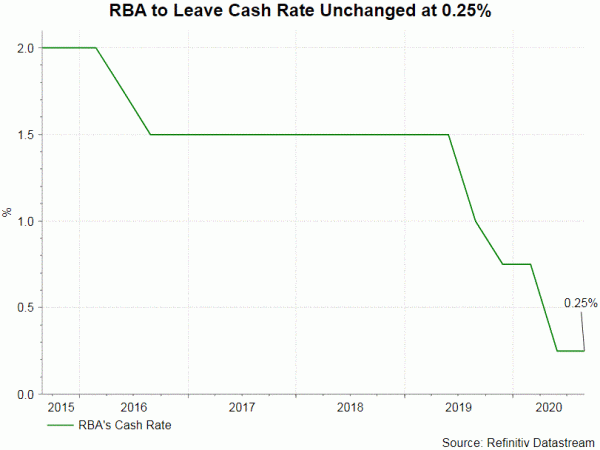
Economic developments since the August Meeting
The employment report for July was the most important macroeconomic data released since the August meeting. The unemployment rate edged +0.1 percentage point higher to 7.5% in July, better than consensus of 7.8%. The number of payrolls increased +114.4K. While the addition was fewer than June’s +210.8K, it was stronger than consensus of +40K. Meanwhile, a higher participation rate also signaled improved optimism about the job market. Despite the improvement the unemployment rate was still far above RBA’s target of about 4.5%.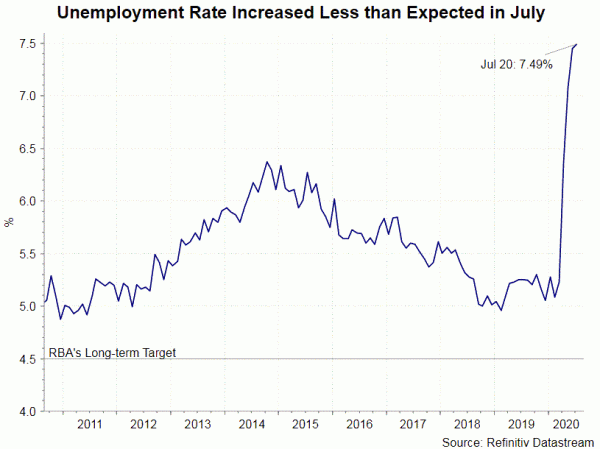
GDP growth data for 2Q20 due on September 2 is closely watched. The report should confirm that Australia has entered technical recession (with two consecutive quarters of economic contraction). The sharp fall in economic activities was brought about by the restrictive measures (such as lockdowns, social distancing and border closure) as a result of the coronavirus pandemic. The market projects a -6% q/q contraction, following a -0.3% decline in the first quarter.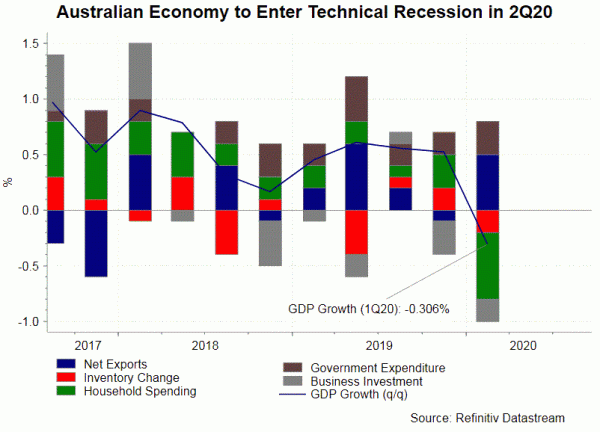
Markit’s PMI in August provides hints to economic developments amidst renewed lockdowns in part of the country. The composite index fell -9 points to 48.8 in August, suggesting the economic activities drifted back to contraction. The services sector also reversed to contraction with the PMI plunging -10.1 points to 48.1. Manufacturing activities, however, remained firm. The corresponding index slipped -0.1 point to 53.9. The decline in the overall economic activities was mainly driven by the lockdown measures in Victoria. It is crucial for the government to continue providing fiscal support for households and businesses.
Monetary Policy Outlook
Last month, RBA left its forward guidance unchanged. It pledged not to “increase the cash rate target until progress is being made towards full employment and it is confident that inflation will be sustainably within the 2–3% target band”. The only news was that it would “purchase AGS in the secondary market” as the 3-year yield had “been a little higher than 25 bps”. It would be of interest to see the members’ reaction to the movement of 3-year yield since RBA had restarted purchases. Subsequently, Governor Philip Lowe noted at the Parliamentary Testimony that RBA could “make some adjustments“ in the monetary policy if the pace of recovery came in weaker than expected, he did not think they would “get much traction“. We expect the central bank to reiterate the above stance at the upcoming meeting. Further easing measures the central bank could adopt include cutting the policy rate by -10bp and buying more longer-duration bonds. Yet, negative interest rates have already been ruled out.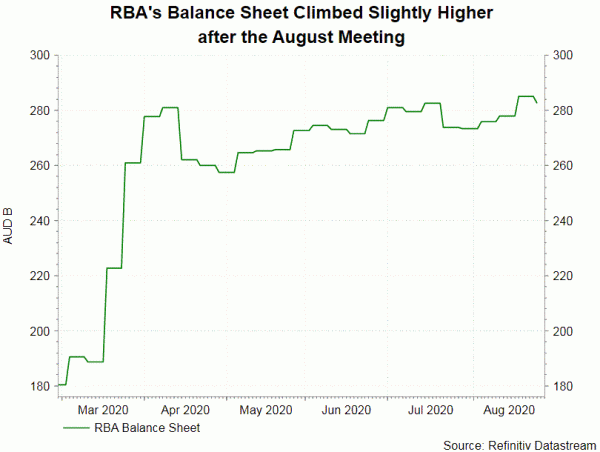
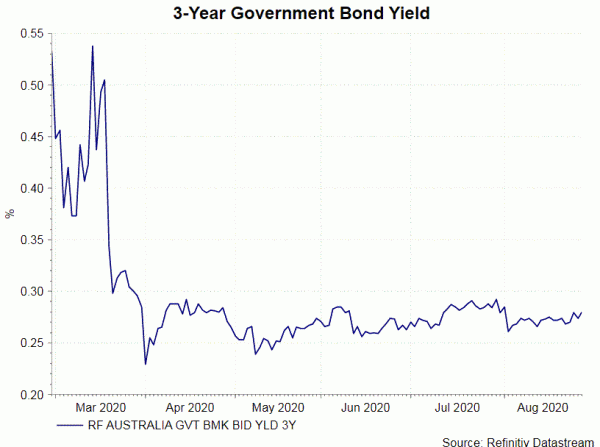


 Signal2forex.com - Best Forex robots and signals
Signal2forex.com - Best Forex robots and signals




